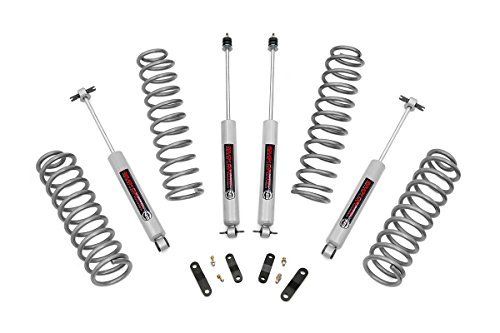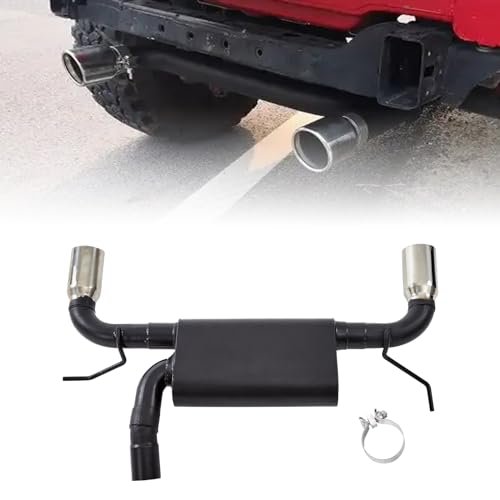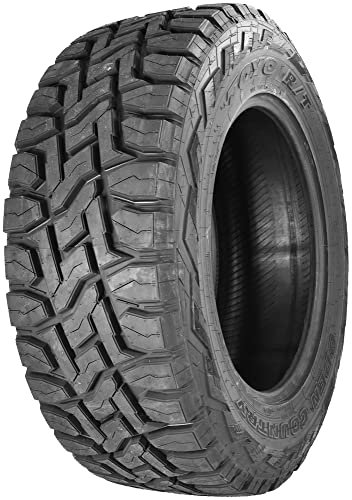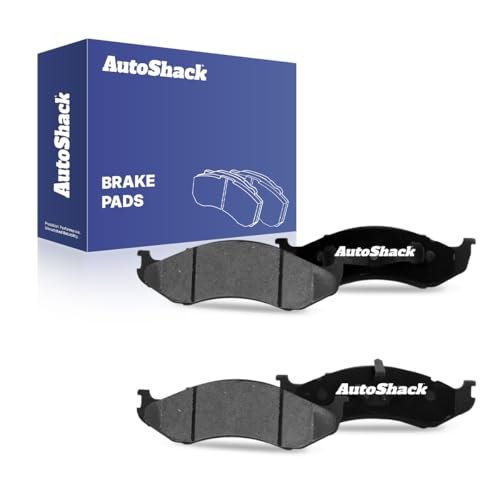Your Jeep is making a knocking sound due to potential engine issues or worn-out components.
1. Common Causes Of A Knocking Sound In A Jeep
When your Jeep starts making a knocking sound, it can be concerning and indicate underlying issues. One of the possible causes for this sound is worn-out engine components. Over time, the pistons, connecting rods, or crankshaft bearings may become damaged or worn, leading to a knocking noise. It is essential to regularly maintain and inspect these crucial engine parts to prevent further damage.Another potential cause could be a faulty ignition system. The spark plugs, ignition coil, or distributor may be malfunctioning, resulting in misfires and a knocking sound. These components should be checked and replaced when necessary to ensure proper engine performance.Loose or damaged belts can also contribute to the knocking noise. The belt that drives the alternator, power steering pump, or water pump can become loose or torn, causing slippage and generating a knocking sound. Regular inspections and belt replacements are crucial to maintain a properly functioning engine.Low oil pressure is yet another possible cause of a knocking sound. Insufficient lubrication can lead to increased friction and wear on engine components, resulting in knocking noises. It is important to check the oil levels regularly and perform oil changes as recommended to prevent low oil pressure.
| Common Causes of a Knocking Sound in a Jeep |
|---|
| Worn-out engine components |
| Faulty ignition system |
| Loose or damaged belts |
| Low oil pressure |
1.1 Worn-out Engine Components
When your Jeep starts making a knocking sound, it could be due to worn-out engine components. One possible cause is worn piston rings, which can result in a knocking noise as the engine loses compression. Another potential culprit is the connecting rod bearings, which may wear out over time and cause a knocking sound during engine operation. Additionally, cracked cylinder heads can also contribute to a knocking noise, as they can affect the combustion process and lead to engine noise. It’s important to address these issues promptly, as continued driving with these problems can cause further damage to the engine. If you hear a knocking sound in your Jeep, it’s recommended to have it inspected by a qualified mechanic to determine the exact cause and necessary repairs.
1.2 Faulty Ignition System
The knocking sound in your Jeep can be a result of various issues related to the faulty ignition system. One common problem that may cause this noise is spark plug issues. Over time, the spark plugs can become worn out or damaged, causing a knocking sound in your engine. Another potential culprit is the ignition coil. A faulty coil can disrupt the flow of electricity to the spark plugs, resulting in a knocking noise. Lastly, timing issues can also lead to a knocking sound. If the timing of the ignition system is off, the fuel and air mixture may not ignite properly, leading to knocking sounds. If you notice a knocking sound in your Jeep, it is essential to have it diagnosed and repaired by a professional mechanic to prevent any further damage to your vehicle.
1.3 Loose Or Damaged Belts
One possible reason why your Jeep may be making a knocking sound is due to loose or damaged belts. The serpentine belt, also known as the drive belt, plays a crucial role in powering various engine components. If this belt becomes worn out or is not properly tensioned, it can cause a knocking noise. Another potential culprit could be a faulty tensioner pulley, which helps maintain the appropriate tension on the belts. If the pulley is damaged or worn out, it may not properly absorb vibrations, resulting in a knocking sound.
1.4 Low Oil Pressure
If your Jeep is making a knocking sound, it could be due to low oil pressure. Low oil pressure can be caused by several factors, including an oil pump malfunction, oil filter clogging, or oil level being too low. An oil pump malfunction means that the pump is not circulating oil properly, resulting in insufficient lubrication for the engine. This can lead to knocking sounds as the engine components rub against each other. Clogging of the oil filter can also restrict the flow of oil to the engine, causing low oil pressure and resulting in knocking sounds. Finally, if the oil level is too low, there may not be enough oil to lubricate the engine properly, leading to knocking sounds. It is important to address these issues early on to prevent further damage to your Jeep’s engine.
2. How To Diagnose A Knocking Sound In A Jeep
When your Jeep starts making a knocking sound, it can be concerning. However, diagnosing the issue isn’t always straightforward. One way to start is by listening carefully to determine the location of the sound. This can help narrow down possible causes.
Next, it’s important to check the oil level and pressure. Low oil levels or insufficient pressure can lead to increased engine noise. Ensuring that the oil is at the correct level and that the pressure is within the manufacturer’s recommended range is crucial.
Another step is to inspect the ignition system. Faulty spark plugs or spark plug wires can lead to a knocking sound, so it’s essential to examine these components for any signs of damage or wear.
Lastly, it’s vital to examine the engine components. Loose or damaged parts such as connecting rods, pistons, or valve lifters can produce a knocking sound. Carefully inspecting these components can help identify any issues that may require repairs or replacement.
| Listen for the sound location | Check the oil level and pressure | Inspect the ignition system | Examine the engine components |
2.1 Listening For The Sound Location
One of the common issues that Jeep owners may encounter is a knocking sound. To identify the source of the sound, it is crucial to listen carefully and determine if it comes from the engine, undercarriage, or dashboard area. If the knocking sound is heard from the engine, it could be due to issues such as worn-out bearings, piston problems, or a faulty valve train. On the other hand, a knocking sound from the undercarriage might signify problems with the suspension system, such as worn-out control arm bushings or damaged shocks. Lastly, if the knocking sound seems to originate from the dashboard area, it could signal issues with the HVAC system or loose components. By pinpointing the location of the knocking sound, Jeep owners can take appropriate measures to address the underlying problems and ensure the smooth operation of their vehicles.
2.2 Checking The Oil Level And Pressure
Inspecting the dipstick is the first step in checking the oil level of your Jeep. Make sure the engine is turned off and the vehicle is parked on a level surface. Locate the dipstick, usually labeled with an oil can icon. Pull it out and wipe it clean with a cloth or paper towel. Insert the dipstick back into the tube fully and then remove it again. Check the oil level by looking at the markings on the dipstick. If the oil level is below the minimum mark, it indicates that the engine is low on oil and needs to be topped up.
To measure oil pressure, you will need a pressure gauge. Connect the gauge to the oil pressure sending unit or directly to the engine using the appropriate fittings.
Start the engine and let it idle. Observe the oil pressure gauge as it should provide a reading within the recommended range for your specific Jeep model. If the oil pressure is too low or fluctuating, it can be a sign of an issue with the oil pump or other components.
| Low Oil Pressure Warning Signs |
|---|
| Knocking or ticking noise from the engine |
| Oil pressure warning light on the dashboard |
| Engine overheating |
| Loss of power or acceleration |
2.3 Inspecting The Ignition System
Inspecting the ignition system is crucial when trying to diagnose a knocking sound in your Jeep. The first step is to check the spark plugs. Start by removing each spark plug, one at a time, and inspecting them for signs of wear, such as excessive carbon buildup or cracked insulators. If any of the spark plugs appear damaged or worn, they should be replaced.
Next, it’s important to test the ignition coil. A faulty ignition coil can cause misfires and result in a knocking sound. Using a multimeter, check the resistance of the ignition coil and compare it to the manufacturer’s specifications. If the resistance is outside the acceptable range, the ignition coil may need to be replaced.
Finally, verifying the timing is essential. Incorrect ignition timing can cause knocking noises and other performance issues. Consult your Jeep’s manual or a service technician to ensure the ignition timing is set correctly.
2.4 Examining The Engine Components
When your Jeep starts making a knocking sound, it is essential to examine the engine components to diagnose and resolve the issue. One component to inspect is the piston rings. These rings ensure proper compression and prevent oil from entering the combustion chamber. Check for any signs of wear or damage, such as excessive carbon buildup or bent rings. Additionally, examine the connecting rod bearings, which connect the piston to the crankshaft. Look for any play in the bearings or signs of wear. Inspecting the cylinder heads is also crucial, as they house the valves and combustion chambers. Check for cracks, leaks, or any other visible damage. Identifying any issues with these engine components will help you determine the cause of the knocking sound and take appropriate actions to resolve it.
3. How To Fix A Knocking Sound In A Jeep
Is your Jeep making a knocking sound? Don’t worry, we’ve got you covered! There are a few potential causes for this issue, but luckily there are also some simple fixes you can try. One common culprit is engine problems. If your engine is making a knocking sound, it may need repair or even replacement. Another possibility is an issue with the ignition system. Ignition system repairs can eliminate the knocking noise. Additionally, a loose or worn-out belt could be the culprit. Tightening or replacing the belt might solve the problem. Lastly, low oil pressure could cause a knocking sound. Troubleshooting the oil pressure and ensuring it’s at the proper level can help resolve this issue. Remember to address the problem based on your specific situation. Consult with a professional if needed. Now you can hit the road in your Jeep, free from any annoying knocking noises!
3.1 Engine Repair Or Replacement
A knocking sound in your Jeep’s engine can be concerning, but it’s important to diagnose the issue accurately before deciding whether to repair or replace any engine components. Replacing worn-out components is one option to consider. It’s vital to identify which parts are causing the knocking sound, such as the pistons, connecting rods, or bearings. Assessing the severity of the issue helps determine whether a simple repair or a complete overhaul of the engine is necessary.If the knocking sound is caused by worn-out components, replacing them can be a more cost-effective alternative to a full engine replacement. This approach involves inspecting and replacing damaged parts, ensuring the smooth operation of the engine and minimizing further damage. However, if the knocking sound is indicative of major internal engine problems, an overhaul or replacement might be required. In such cases, it’s advisable to consult a qualified mechanic who specializes in engine repairs to accurately diagnose and address the issue for optimal performance and longevity.
Replacing Worn-out Components
Replacing worn-out components involves identifying and addressing the specific parts causing the knocking sound, such as pistons, connecting rods, or bearings, which may have become damaged over time. By examining these components, replacing the faulty ones, and ensuring proper installation, the engine’s performance can be restored without the need for a complete engine replacement. This approach can offer cost savings and extend the lifespan of the engine, as opposed to more complex repairs or replacements.
Overhauling The Engine
If the knocking sound signifies major internal engine problems and worn-out components are widespread, an overhaul or replacement may be necessary. This process entails a comprehensive examination of the entire engine and addressing any underlying issues. Overhauling the engine may involve disassembling it, inspecting each component, replacing damaged parts, cleaning, and reassembling. While more time-consuming and potentially costly, an engine overhaul can restore performance and ensure the reliability of your Jeep.
3.2 Ignition System Repairs
If you are experiencing a knocking sound in your Jeep, it could be due to issues with the ignition system. One common problem is the need to replace the spark plugs. Over time, spark plugs can become worn and can cause the engine to misfire, leading to a knocking noise. Another issue could be with the ignition coil. Faulty ignition coils can also cause misfires and knocking sounds. Lastly, adjusting the timing of the ignition system may be necessary. Incorrect timing can result in engine knocking. It is important to address these ignition system repairs promptly to prevent further damage to your Jeep’s engine. By replacing spark plugs, fixing ignition coil issues, and adjusting the timing, you can eliminate the knocking sound and ensure smooth and optimal engine performance.
3.3 Belt Tightening Or Replacement
When your Jeep starts making a knocking sound, it could be a sign that the belt needs tightening or replacing. Get it checked by a professional for safe and smooth driving.
Properly adjusting the tensioner pulley can help resolve the knocking sound issue in your Jeep. Begin by checking the condition of the belts. If they are loose or damaged, replacing them is necessary. Inspect the tensioner pulley for any signs of wear or damage as well. To tighten the belt, locate the adjustment bolt and rotate it until the desired tension is achieved. Ensure the belt is aligned with the pulleys and does not slip when the engine is running. If the belts are in good condition, but the knocking sound persists, a replacement may be necessary. Consult your vehicle’s manual for specific instructions on how to replace the belts and tensioner pulley.
3.4 Oil Pressure Troubleshooting
When dealing with a knocking sound in your Jeep, it is important to address the issue promptly to prevent further damage. One possible cause of the knocking sound could be an oil pressure problem. Here are a few steps you can take to troubleshoot the oil pressure:
| Step 1: | Start by checking the functionality of the oil pump. A faulty oil pump can lead to low oil pressure, causing knocking noises. Consult your Jeep’s manual for instructions on how to check the oil pump. |
| Step 2: | Inspect and replace the oil filter if needed. A clogged or dirty oil filter can restrict oil flow and result in low oil pressure. Refer to the manual for the location of the oil filter. |
| Step 3: | Maintain proper oil level in your Jeep. Insufficient oil can cause inadequate lubrication, leading to increased friction and knocking sounds. Regularly check and top up the oil as recommended. |
By following these steps, you can troubleshoot oil pressure issues that may be causing the knocking sound in your Jeep. Remember to consult your Jeep’s manual or seek professional assistance if needed.

Credit: www.cherokeeforum.com
Frequently Asked Questions On Why Is My Jeep Making A Knocking Sound
What Causes A Knocking Noise When Driving?
A knocking noise while driving can be caused by engine problems, such as worn-out bearings or a malfunctioning fuel system. It could also be due to issues with the suspension or exhaust system. Get a professional inspection to diagnose and fix the problem.
How Do You Fix An Engine Knocking Sound?
To fix an engine knocking sound, you can try using a higher quality fuel or an engine additive to reduce the knocking. If the issue persists, it is best to consult a professional mechanic to diagnose and repair the problem.
Regular maintenance and oil changes can also prevent knocking sounds in the long run.
Why Is My Jeep Making A Tapping Noise?
A tapping noise in your Jeep could indicate engine problems, such as low oil levels or worn-out lifters. It’s crucial to have a mechanic diagnose and fix the issue to prevent further damage.
What Happens When You Hear A Knocking Sound In Your Engine?
A knocking sound in your engine can indicate a serious issue, such as worn-out bearings or damaged pistons. It is essential to get it checked by a mechanic to prevent further damage and costly repairs.
Conclusion
If you notice a knocking sound coming from your Jeep, it is crucial to address the issue promptly. By understanding the possible causes such as worn-out engine components or loose parts, you can take appropriate action to prevent further damage.
Regular maintenance, inspections, and seeking professional help when needed are key in maintaining the performance and longevity of your Jeep. Stay proactive and keep your Jeep running smoothly for your next off-road adventure or daily commute.






